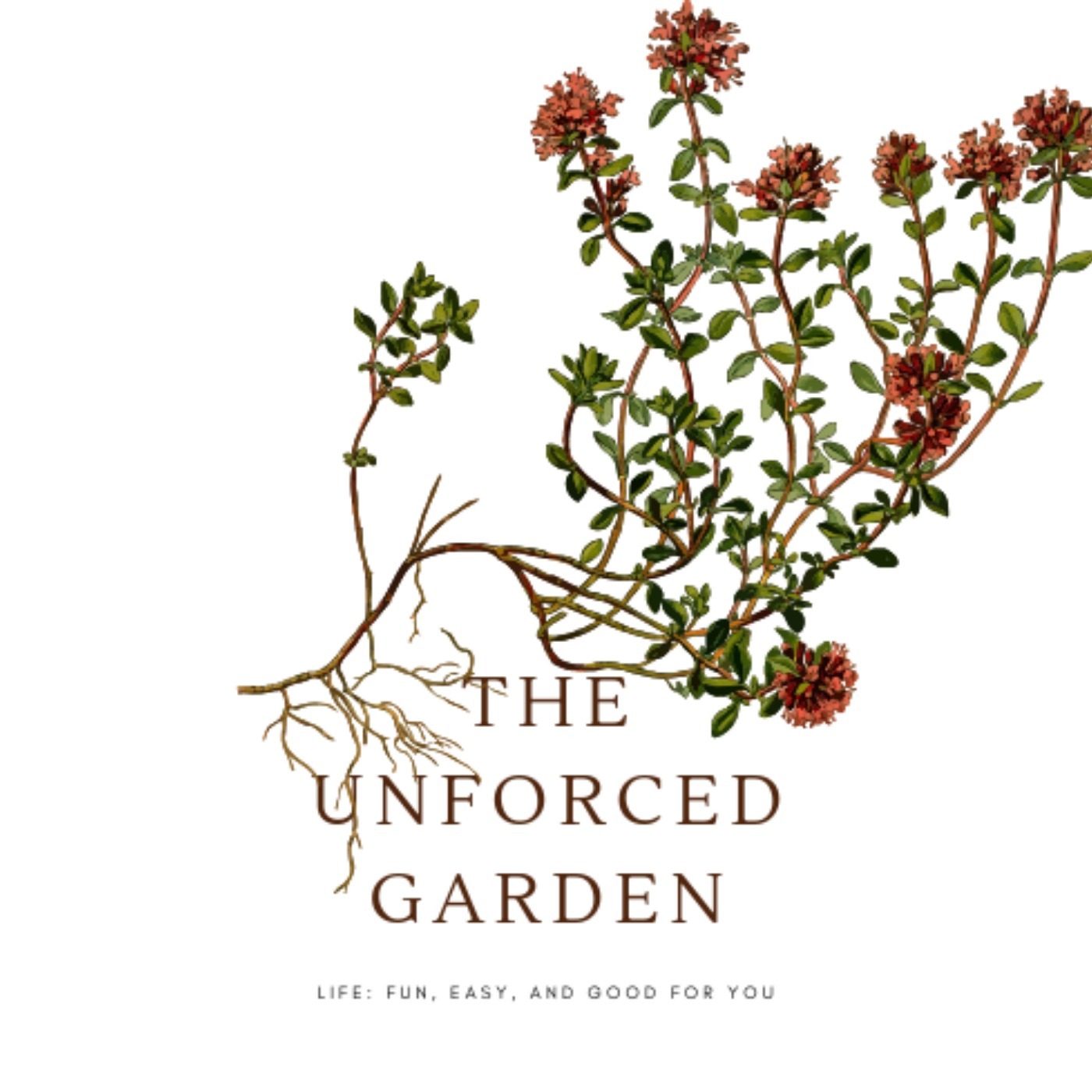Weeds and New Perspectives
6m | Aug 19, 2019When weeds invade your garden, it's tempting to feel guilty about them - even to try to pull them out. But what if you let them stay? Find out in this episode of The Unforced Garden Podcast.
Transcript:
Let’s talk about weeds. They’re unwelcome in most gardens. Weeds are a signal that the gardener hasn’t been committed to the garden, that something is amiss, untended, an eyesore, bringing down property value, a source of stress to be reckoned with, perhaps with poison, perhaps with fire.
There is a different lens through which you can view weeds. Let’s start with soil. Soil is filled with living organisms, all working together to create a rich ecosystem of life and nutrients. When soil becomes cracked and dry, that ecosystem lacks moisture and temperature control. The organisms die. The soil dries up and floats away as dust. The ecosystem fails.
Brilliantly, dry, bare soil attracts weeds. First come the pioneers; small weeds such as chickweed, that send a network of shallow roots into the dirt, beginning a fine mesh that will knit the soil back together. They provide just enough water and soil retention, enough sun cover, for other seeds to take root. Soon come grasses and taller plants, such as false dandelion. Then come shrubs. Then small trees. Then large trees. The ecosystem of the soil is restored, and the land has become verdant once again.
In other words, weeds can be the benevolent saviors of your garden. They have simply been recast as ugly interlopers, forcing themselves in where they’re not wanted. That’s a pity because they could be ameliorating your soil, providing nutrition, and sending benevolent chemicals to your begonias.
Consider a good weed patch. A patch of long dried grass, blowing golden in the breeze provides movement and highlights the movement and shimmer of sunlight. Chickweed is a supple, soft, lush green plant, edible and comfortable on bare feet. False dandelion has an architectural beauty to its tall, stark stems, and provides buttery yellow blooms that morph into fairy-like puffs of silvery white. The ground is covered; the soil is rich, and animals take cover; squirrels and jays plant seeds, and new things grow.
There is the possibility of letting a garden grow without every planting a thing. You could line a lawn-sized patch of bare dirt with several paths, install some statuary, benches, and archways, maybe a table and some chairs, and then let go. See what happens. Let the weeds come, and enjoy them, along with the animals that flock to them. You can simply sit on a bench with some lemonade and look for wildlife instead of pulling weeds. The hardscaping (the furniture and paths you set up) will set off the wild landscape emerging around you; the space will look intentional.
Swamps become meadows. Meadows become shrub-lands. Shrub-lands become forests. It’s okay; nature knows what to do. You don’t have to do anything.
And there is the possibility, in an Unforced Garden life, to do the same thing with your life planning. If you’re tired, drained, out of ideas, even out of hope, or if you’re confronted with endless weeds in your life - flubbed opportunities, perhaps the caretaking of a special needs child or an elderly relative, a menial career, a broken family, or recovering from a suicide attempt, to take the weed patch approach to life.
Here’s how. Install the hardscaping of life. Open spaces of time in your schedule where you are free to do what you like. Weekly visits to somewhere in particular. Monthly coffee dates with a friend. Daily walks around your neighborhood. A good dinner every night. You know, things to that effect - regularly scheduled anchors that are, of course, fun, easy, and good for you.
And then you wait, simply wait, for activities, friends, job opportunities, school opportunities, entrepreneurial opportunities, hobby opportunities, to emerge. Keep the ones that are fun, easy, and good for you. Let the others bow out of your life. In other words, clear out everything you can and let the weeds come. And learn to love the weeds that you are simply stuck with - scars, heart-breaking children, trauma, miscarriages, and grief. Perhaps, like garden weeds, they’ll send nutrition and softening to your soul, and heal you from the inside out.
You can also permit weeds in a cultivated life. There’s always room for a lovely middle path. You can strike a balance between false dandelions and begonias and enjoy the ways in which they set each other off. Caring for an uncle with dementia can lead you to discover rich friendships with other caretakers. Grief can open you up toward expressing greater love to others. Contrast is beautiful.
Here’s your homework: let a weed grow in the garden of your life. Something unexpected, something you didn’t plan for, something that, on the surface, is an ugly interloper but may, upon close inspection, be lovely, helpful, easy, fun, and good for you. Watch it. Consider it. Learn from it. And if you hate it, kill it off. If you love it, let it stay.
That’s the end of this episode. If you enjoyed it, please share it with someone.
Support this podcast at — https://redcircle.com/the-unforced-garden-a-new-method-of-life-design/donations
